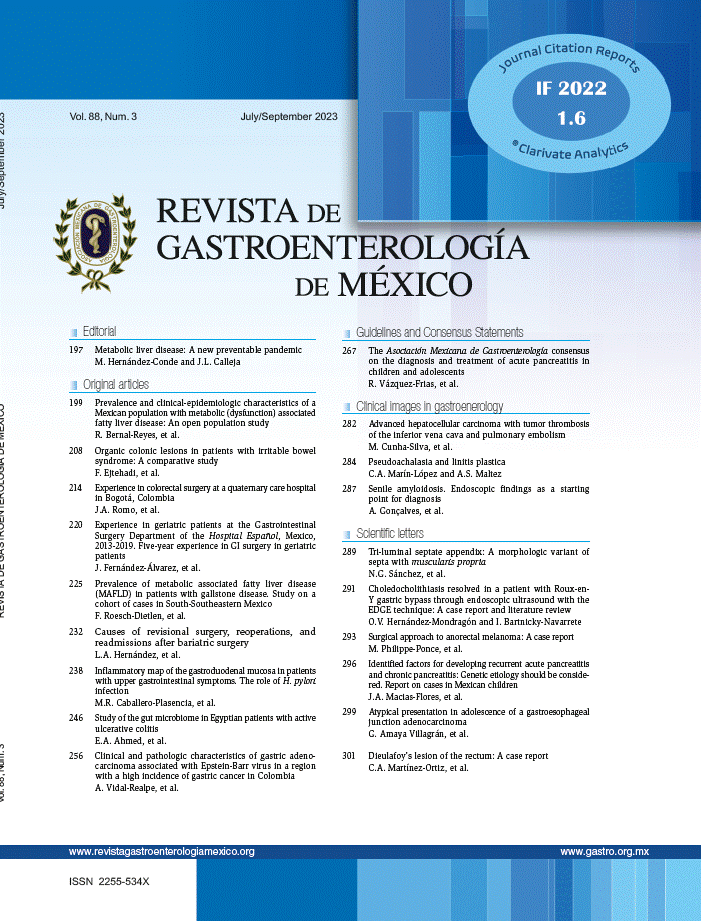We have read with great interest the excellent review by Barrientos-Ávalos et al.,1 published in your journal, that emphasizes how different treatments for diabetes mellitus (DM) can cause significant gastrointestinal adverse effects. One of the effects described in more detail is the delay in gastric emptying related to glucagon-like peptide-1 receptor agonists (GLP-1RAs). Those drugs, whose prescription worldwide has exceeded all expectations, have revolutionized the treatment of DM and obesity. We would like to make a contribution to the review, regarding the risk associated with the delayed gastric emptying that poses important challenges in perioperative and endoscopic contexts.
By delaying gastric emptying, GLP-1RAs increase the likelihood of retained gastric contents, even after the standard fasting period, which could increase the risk of pulmonary aspiration in procedures that use deep sedation or general anesthesia. In this regard, a recent study analyzed more than 900,000 endoscopic procedures, finding a significant increase in the risk of aspiration pneumonia in patients being treated with GLP-1RAs, compared with patients not treated with them (HR 1.33: 95% CI 1.02–1.74; p=0.036).2 As a consequence of that analysis and other preliminary studies, the American Society of Anesthesiologists (ASA) recently published guideline recommendations that suggest suspending GLP-1RAs before an endoscopic or surgical procedure, to reduce the risk of aspiration (7 days for the weekly dose and 24h for the daily oral dose).3 From our conservative point of view, this approach aims to respond to the potential risk of aspiration and its possible catastrophic consequences. However, those recommendations have not been supported among gastroenterologists. GLP-1RA suspension makes the control of diabetes and obesity difficult, may affect treatment adherence, and increases the risk of metabolic decompensation. In fact, the American Gastroenterological Association (AGA) published multisociety-endorsed recommendations that avoid making generalizations that may delay procedures without a clear rationale.4 In addition, several recent publications found no significant increase in the risk of aspiration in subjects in whom GLP-1RAs were not suspended, as long as a period of exclusive liquid intake longer than the conventional one was observed.5
The apparent lack of agreement on how to manage patients on GLP-1RAs, who require endoscopic procedures, underlines the need for prospective studies that evaluate, not only the risk of aspiration, but also the effectiveness of different management strategies. Current evidence supports a personalized approach that balances the risks associated with residual gastric content and the consequences of withholding treatment. Until such studies become available, a position paper from the 5 most important North American societies involved in the care of patients taking GLP-1RAs is at our disposal. Its recommendations support prolonged fasting, liquid diet, gastric ultrasound, and especially, the individualization of risk, to prevent massive procedure cancellation.6
Ethical considerationsBecause this is a Letter to the Editor that contains no patient data or research results on humans or animals, we consider no ethics committee approval or informed consent are required.
Financial disclosureNo financial support was received in relation to this letter.
The authors declare that there is no conflict of interest.




